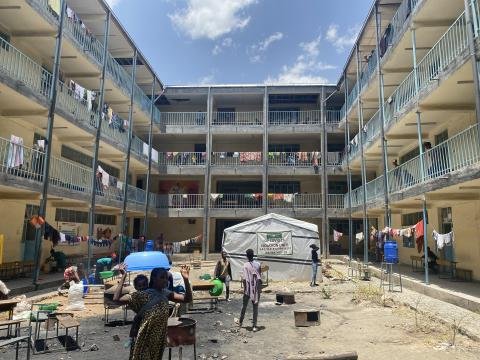
Over 1.7 million people displaced due to conflict are in need of urgent assistance across 265 accessible locations in Ethiopia’s Tigray region and neighboring Afar and Amhara, according to data collected by the International Organization for Migration’s (IOM) Displacement Tracking Matrix (DTM).
The data reveals the extent to which people have fled to towns and cities to seek humanitarian assistance and gain access to essential services. It is the fifth such assessment conducted by IOM in the area.
The figures were collected through a monthly Emergency Site Assessment which has been in place since the conflict in Northern Ethiopia erupted in November 2020. The assessment, conducted between 01-22 April, shows that there are some 1,645,944 IDPs in Tigray region, another 48,420 in Afar region and 20,812 in Amhara region.
The data are only indicative of the displacement in areas accessible to IOM enumerators. Many sections of the Tigray region’s Northwestern, Central, Eastern and Southern zones remain out of reach to humanitarian partners due to continuing insecurity.
The highest concentration of displaced persons is in Shire, where 575,115 IDPs are residing in overcrowded collective shelters, including schools, within the host community and in open spaces. The majority are from Western and Northwestern Tigray. Other urban areas with high displacement concentrations included Adwa (188,910), Sheraro (165,223), and Mekele Zone (200,909).
According to the analysis of DTM and partner datasets, there is a pressing need to deal with growing food insecurity, particularly to assist those displaced, as well as providing shelter, water, sanitation, hygiene and other non-food items in the overcrowded sites across the conflict-affected area.
Since the beginning of the crisis, IOM has been monitoring the humanitarian and displacement situation through monthly area-based assessments, which capture the number of displaced persons, their locations and needs to inform the wider humanitarian response.
Source: IOM







